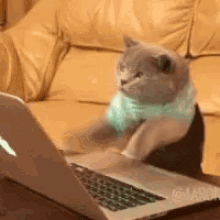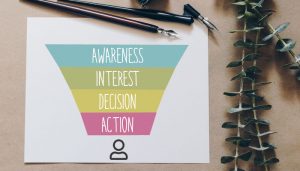If you’re the kind of person who consistently juggles several balls in the air at work or at home, then this article is for you. Multitasking seems to be efficient, it makes us feel like we’re getting ‘stuff’ done, yet in actuality research shows that it has detrimental effects on our productivity, our memory and our stress levels.
We take a look at some of the effects of multitasking in closer detail and suggest new ways of working for optimal productivity.
It doesn’t save you time
 When we’re working on two, or even three, tasks at the same time it can make us feel like we’re knocking the ball out of the park. But by multitasking on a number of tasks, it can take you longer than if you worked on each separately. This is because we jump backwards and forth, which takes more energy, and your brain takes time to refocus on each new task.
When we’re working on two, or even three, tasks at the same time it can make us feel like we’re knocking the ball out of the park. But by multitasking on a number of tasks, it can take you longer than if you worked on each separately. This is because we jump backwards and forth, which takes more energy, and your brain takes time to refocus on each new task.
Researchers have found that doing things in batches is actually more efficient than multitasking because you’re in a specific mindset for each task. You get on a roll so to speak. Use solid time management techniques rather than multitasking to make the best use of your day.
You’ll make more mistakes
Did you know that switching between tasks can cause a productivity loss of 40%? It can also cause you to make mistakes if you introduce tasks that require critical thinking. The human brain can handle a couple of complicated tasks with no trouble. But add a third task and you’ll start making errors.
It will stress you out

Do you work like the cat in the GIF when you answer emails? Multitasking isn’t good for your blood pressure or your stress levels. Trying to complete a lot of tasks in a short time frame can keep your heart rate up and make you feel like you’re constantly on high alert. The physical act of multitasking can lead to self-esteem issues and depression because you feel you’re not able to do your best and give 100% to each individual task.
Instead schedule half an hour at the beginning and at the end of the day to answer emails. You’ll get through more work and be less distracted by other tasks. These stress management strategies can help you relax if you start feeling overwhelmed.
It makes you unaware of details
Trying to do two things at once can make you overlook details. Texting and walking is a good example as it can make you oblivious to your immediate surroundings; for instance, many people on their smartphones get hit by cars by stepping out onto crosswalks without looking.

Multitasking at your desk isn’t as life threatening as texting and walking, but it can make you miss important details that could come back to bite you later on.
It disrupts short term memory
Switching tasks can disrupt your short term memory so you may find it difficult to remember what you were doing before you switched. As we get older this happens more frequently, like walking into a room and forgetting why you’re there.
Stay on track by working on one task at a time and giving it your full attention. Your short term memory will be stronger and more reliable.
It can make you eat more
The working lunch is something we take for granted. You might see it as a way to ‘catch up’ on emails or outstanding tasks. But you could be putting on the pounds by doing so. If you do other things while eating your brain doesn’t fully process what you’ve put in your mouth. In fact you may not even remember eating lunch at all. The usual solution is to head to the snack machine or the fridge for something to satisfy the 3pm munchies.

It’s better for your waistline to leave the office and have a proper lunch break. If you must eat while working, have some healthy snacks on hand.
Forget multitasking and try deep work
When you spend most of your day doing ‘shallow work’ i.e. answering and reading emails, going to meetings and checking your phone, it doesn’t leave much room for ‘deep work’. This is when you work on one task at a time, give it your full attention and enter a state of flow.
Deep work has been found to be more valuable for our brains and productivity than multitasking. It allows you to push your cognitive capabilities and improve your skills. So next time you find yourself multitasking take a deep breath and put the other tasks aside. They can wait until you’ve finished what you’ve started.


